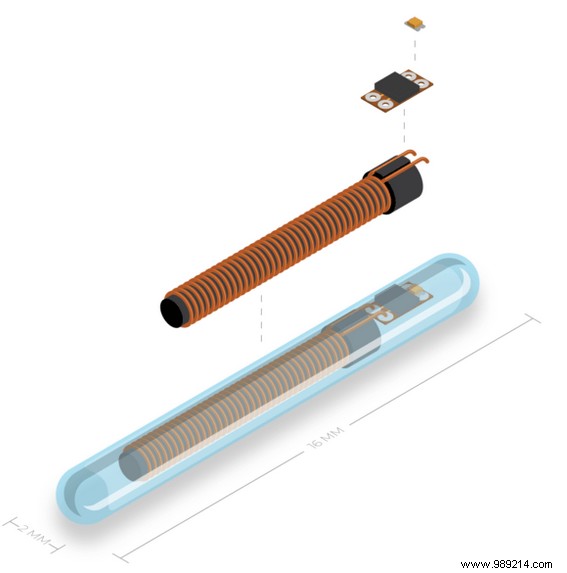While the vaccination pass will replace the health pass in a few weeks in France, a Swedish company will allow the storage of this document in a subcutaneous chip . Sweden is also a pioneer in this kind of innovation.
In 2015, we were talking about a quite particular concept :the Implant party, a party where participants can have an electronic chip (RFID) the size of a grain of rice placed under their skin. Behind the organization of these special evenings, the first of which took place in Stockholm, we find the group of Swedish biohackers Bionyfiken. In 2017, the Swedish transport company SJ offered the same kind of implant to take the train and replace the usual tickets. It is also possible to use an implant of this type as a means of payment.
As the TechXplore site explains in an article from December 22, 2021, another Sweden-based company is currently in the spotlight. This is DSruptive Subdermals, whose services might not appeal to everyone. Indeed, it is also a question of implanting a subcutaneous chip, but this time with the aim of storing various personal data, including the health pass.
Recall that in France and some other countries, the health pass has caused strong protests since its appearance. However, its application has intensified since the arrival of the Omicron variant and the fifth wave of Covid-19. At the end of January 2022, this same health pass will thus be replaced by the vaccination pass in France.

Since 2021, citizens have been used to presenting their health pass in the form of a QR code on a sheet of paper. Others use their smartphone directly. In Sweden, for a few weeks, some people simply present their hand or their forearm in front of a machine. You should know that the chip is entirely passive :it does not contain any battery. Furthermore, according to DSruptive Subdermals, the implant is unable to send data and cannot be traced.
If some media mention a "Covid-19 chip", DSruptive Subdermals denies having designed the implant for the sole purpose of containing the health pass. Indeed, the user can also add the information of his choice and the company has no control over the data in question. Its CEO, Hannes Sjoblad, also explains that the implant does not present any danger and that it would be more economical and durable than a connected bracelet.